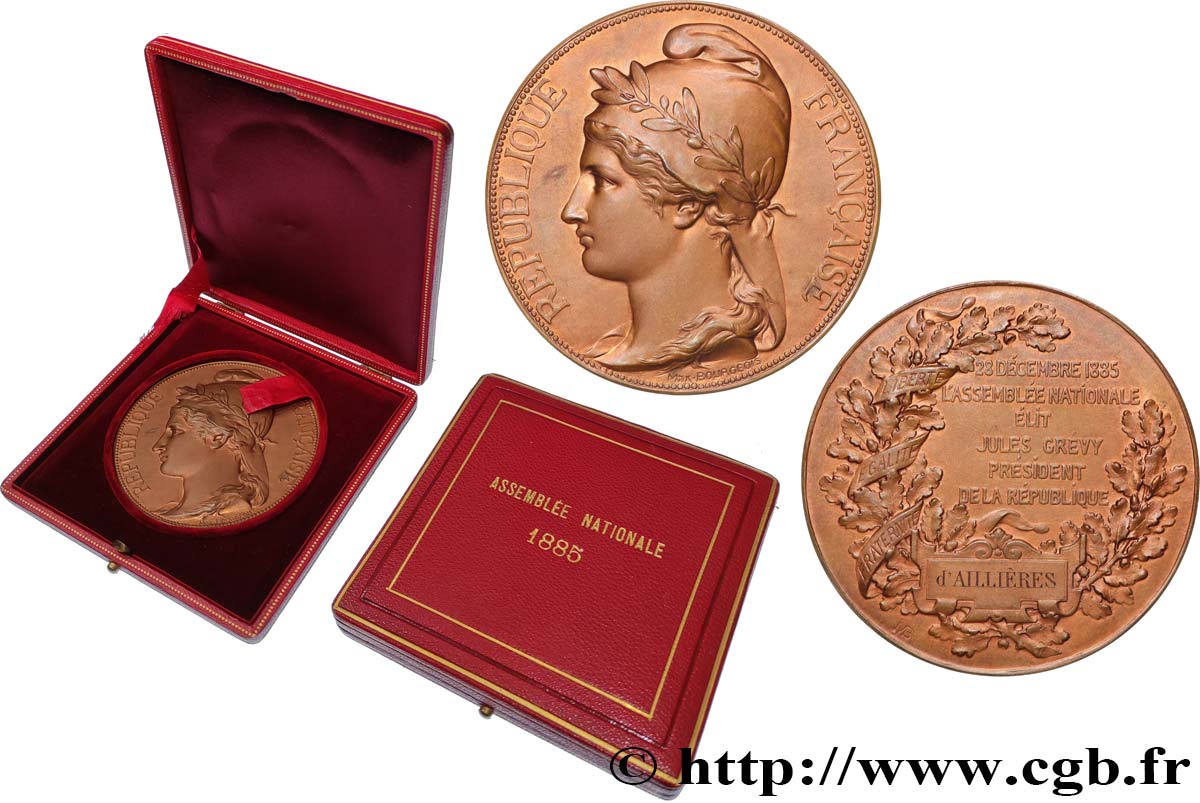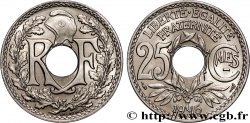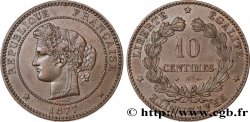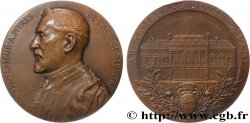fme_881874 - III REPUBLIC Médaille, Élection de Jules Grévy
100.00 €
Количество
Добавить в корзину

Тип Médaille, Élection de Jules Grévy
Дата: 1885
Металл: bronze
Диаметр: 71,5 mm
Ориентация осей монеты: 12 h.
Гравер BOURGEOIS Léon Max (1839-1901)
Вес: 167,53 g.
Век: lisse + corne BRONZE
Пуансон: corne BRONZE
Комментарии о состоянии
Patine hétérogène, du rouge de frappe autour des reliefs. Présence de coups et rayures
Лицевая сторона
Аверс: легенда: RÉPUBLIQUE - * FRANÇAISE.
Аверс: описание: Tête de Marianne, coiffée du bonnet phrygien orné d’une branche d’olivier, à gauche. Signé : MAX BOURGEOIS.
Обратная сторона
Реверс: легенда: 28 DECEMBRE 1885 / L’ASSEMBLÉE NATIONALE / ÉLIT / JULES GRÉVY / PRÉSIDENT / DE LA RÉPUBLIQUE // D’AILLIERES.
Реверс: Описание: Légende en six lignes dans une couronne de chêne avec un ruban inscrit LIBERTÉ ÉGALITÉ FRATERNITÉ ; cartouche avec le nom : de MARCERE. Signé : MB.
Комментарий
Cet exemplaire est conservé dans une boîte cartonnée rouge timbré en lettres dorées ASSEMBLEE NATIONALE 1885. Elle fut remise au député Fernand Caillard d'Aillières.
Jules Grévy, né le 15 août 1807, à Mont-sous-Vaudrey (Jura) et mort le 9 septembre 18911 dans la même commune, est un homme d'État français. Avocat de profession, parlementaire engagé aux côtés des républicains, il est arrêté lors du coup d'État de 1851. À la tête de l'Assemblée nationale de 1871 à 1873, il préside ensuite la Chambre des députés. Il est président de la République française du 30 janvier 1879 au 2 décembre 1887, date de sa démission à la suite du scandale des décorations..
Jules Grévy, né le 15 août 1807, à Mont-sous-Vaudrey (Jura) et mort le 9 septembre 18911 dans la même commune, est un homme d'État français. Avocat de profession, parlementaire engagé aux côtés des républicains, il est arrêté lors du coup d'État de 1851. À la tête de l'Assemblée nationale de 1871 à 1873, il préside ensuite la Chambre des députés. Il est président de la République française du 30 janvier 1879 au 2 décembre 1887, date de sa démission à la suite du scandale des décorations..








 Cообщить об ошибке
Cообщить об ошибке Распечатать страницу
Распечатать страницу Отправить мой выбор
Отправить мой выбор Задать вопрос
Задать вопрос Consign / sell
Consign / sell
 Информация
Информация









